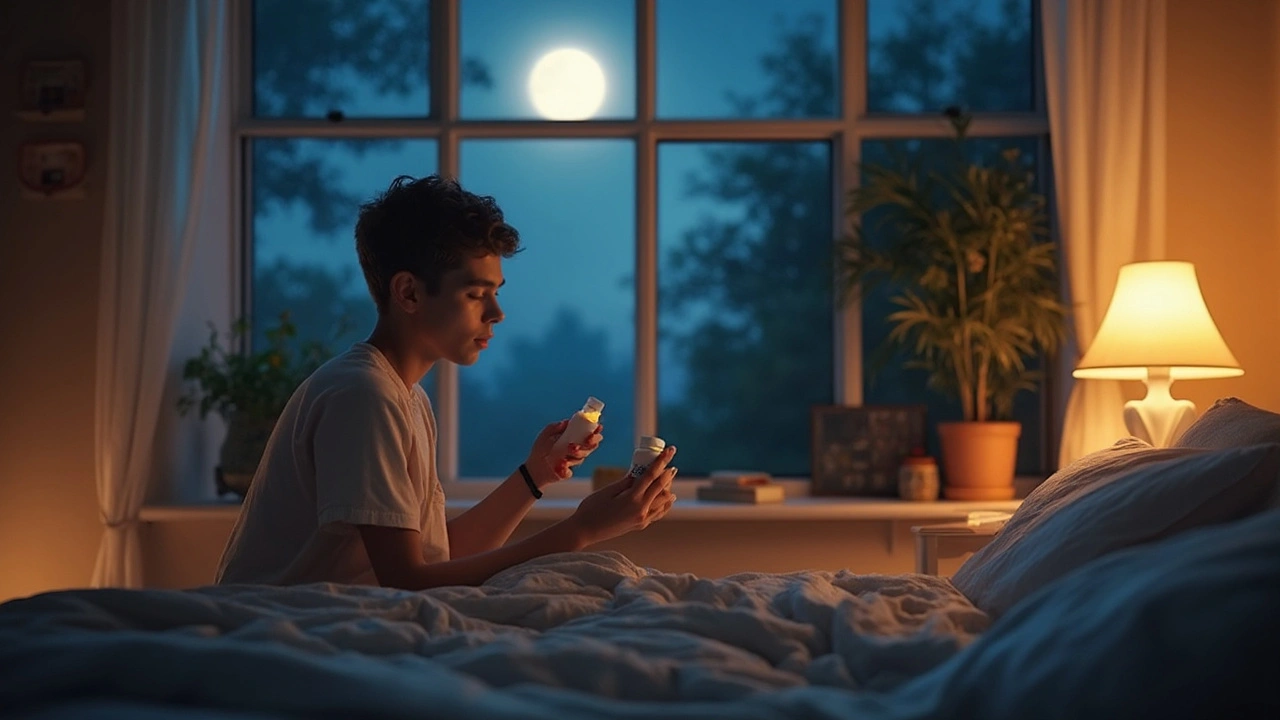Sleep latency is the fancy term for the time it takes you to drift from full wakefulness into sleep. Most healthy adults need about 10‑20 minutes. Anything consistently longer could signal stress, poor habits, or an underlying sleep problem.
Several everyday factors stretch out your sleep latency. Caffeine after noon, bright screens before bed, and a cluttered mind are the biggest culprits. Even the temperature of your room matters – a space that's too hot or too cold can keep your brain alert.
Health conditions also play a role. Anxiety, depression, and certain medications (like stimulants or some antidepressants) can make it harder to “switch off.” If you notice you’re lying awake for more than 30 minutes night after night, it’s worth a quick chat with a clinician.
1. Set a wind‑down routine. Dim the lights, turn off screens at least 30 minutes before bed, and do something calming – reading, gentle stretching, or deep breathing.
2. Watch caffeine and alcohol. Stick to coffee before 2 p.m. and keep evening drinks low‑proof; alcohol may make you drowsy at first but often wakes you up later.
3. Keep the bedroom cool. Aim for 60‑67°F (15‑19°C). A cool environment signals your body that it’s time to lower its core temperature and start sleeping.
4. Limit cluttered thoughts. Try a short journal session before bed: write down worries, to‑do items, and a quick gratitude note. Getting thoughts on paper reduces mental replay.
5. Consistent schedule. Go to bed and wake up at the same time every day, even on weekends. Your internal clock loves regularity and will help you fall asleep faster.
If you’re interested in supplements that might help, check out our guide on acetyl‑L‑carnitine (ALCAR) for energy and focus, which also touches on how stimulants affect sleep. For those dealing with occasional restlessness, diphenhydramine can be a short‑term aid, but read our safety tips first.
Remember, the goal isn’t to force sleep but to create conditions where your body naturally slips into it. Start with one or two changes, track how long it takes you to fall asleep, and adjust as needed. A shorter sleep latency usually means better overall sleep quality and more refreshed mornings.

Curious if baclofen, known for treating muscle spasms, can actually help you catch better sleep? This article breaks down the science, sharing what real studies say about baclofen’s impact on how fast you fall asleep, how long you snooze, and if your sleep actually feels restorative. You'll get straightforward facts on how baclofen compares to popular sleep aids and practical tips if you're considering it. No medical jargon—just clear info, actionable advice, and a few surprising stats about sleep medicine. Ready to learn if this muscle relaxant could be a secret weapon for those tough nights?